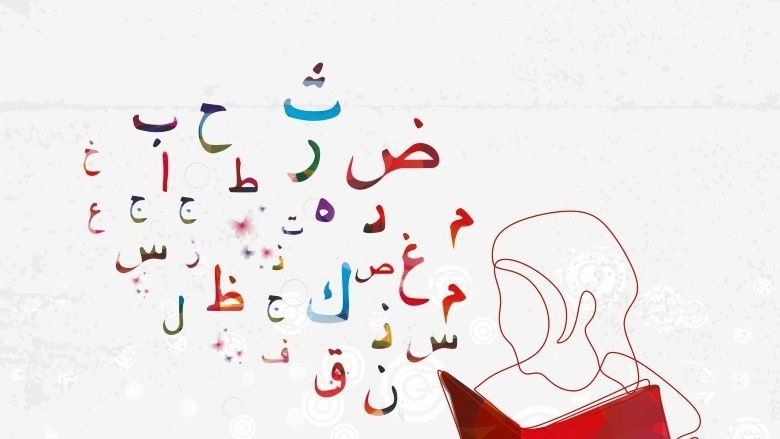 Are you searching for to deepen your connection with Islam and learn to study the Quran? You’re inside the proper vicinity! At Online Quran Islam Academy, we manual you in your adventure to understanding and reciting the holy e book of Islam. In this distribute, we’ll walk you through the steps to learn to read the Quran, give a clarification to its importance, and offer down to earth rules to begin.
Are you searching for to deepen your connection with Islam and learn to study the Quran? You’re inside the proper vicinity! At Online Quran Islam Academy, we manual you in your adventure to understanding and reciting the holy e book of Islam. In this distribute, we’ll walk you through the steps to learn to read the Quran, give a clarification to its importance, and offer down to earth rules to begin.
Why Learn to Read the Quran?
Before we dive into the how-to, we ought to examine the reason why sorting out some way to scrutinize the Quran is so critical for Muslims:
- Direct connection with Allah’s words
- Better understanding of Islam
- Improved prayer experience
- Spiritual growth and peace
- Preservation of Islamic heritage
Now that we understand the importance, let’s get started on your journey to learn to read the Quran!

Getting everything rolling: The Arabic Letters in order
The Structure Blocks: Arabic Letters
The hidden push toward learn to read the Quran is overpowering the Arabic letter set. The Quran is written in Arabic, so it is basic to find out about these letters.
Here is a table of the Arabic letter set to start you off:
| Letter | Name | Sound |
|---|---|---|
| ا | Alif | A |
| ب | Ba | B |
| ت | Ta | T |
| ث | Tha | Th |
| ج | Jim | J |
| ح | Ha | H (heavy) |
| خ | Kha | Kh |
| د | Dal | D |
| ذ | Dhal | Dh |
| ر | Ra | R |
| ز | Zay | Z |
| س | Sin | S |
| ش | Shin | Sh |
| ص | Sad | S (emphatic) |
| ض | Dad | D (emphatic) |
| ط | Ta | T (emphatic) |
| ظ | Zha | Dh (emphatic) |
| ع | ‘Ayn | A (guttural) |
| غ | Ghayn | Gh |
| ف | Fa | F |
| ق | Qaf | Q |
| ك | Kaf | K |
| ل | Lam | L |
| م | Mim | M |
| ن | Nun | N |
| ه | Ha | H |
| و | Waw | W |
| ي | Ya | Y |
Vowels and Diacritical Imprints
Resulting to learning the fundamental letters, you’ll need to grasp the vowels and diacritical engravings used in Quranic Arabic. These engravings, called “tashkeel,” help you with articulating words precisely.
Some common marks include:
- Fatha (ـَ): a short “a” sound
- Kasra (ـِ): a short “i” sound
- Damma (ـُ): a short “u” sound
- Sukun (ـْ): indicates no vowel sound
- Shadda (ـّ): doubles the consonant
Reading Techniques: Tajweed
What is Tajweed?
Tajweed is the game plan of rules directing the proper method for communicating the Quran. It’s an essential piece of sorting out some way to examine the Quran precisely. A few critical parts of Tajweed include:
- Proper articulation of letters
- Correct vowel lengths
- Rules for when to pause or continue reading
- Special rules for specific letter combinations
Basic Tajweed Rules
Here are some basic Tajweed rules to get you started:
- Ghunnah: Nasal sound made with certain letters
- Idgham: Merging of similar sounds
- Qalqalah: A bouncing sound on certain letters
- Madd: Elongation of certain vowel sounds
Keep in mind, dominating Tajweed takes time and practice. Do whatever it takes not to get discouraged in case it has all the earmarks of being problematic every step of the way!
Utilitarian Hints to Learn to Read the Quran
Now that we’ve covered the rudiments, here are a few reasonable tips to help you on your excursion to Learn to Read the Quran:
Begin with Short Surahs
Start your Quran perusing venture with short surahs (sections) from the last piece of the Quran, known as Juz’ Amma. These surahs are frequently more straightforward to remember and rehearse.
Use Online Resources
Take benefit of on-line assets like our internet site, onlinequranislamacademy.Com, which gives established publications and professional steering that will help you learn how to read the Quran.
Practice Regularly
Put away opportunity every day to work on perusing the Quran. Consistency is key in fostering your abilities.
Pay attention to Quran Recitations
Standing by listening to capable Quran reciters can assist you with working on your elocution and mood. Attempt to recount alongside them as you become more agreeable.
Join a Study Group
Learning with others can be motivating and fun. Consider joining a local or online Quran study group to practice and learn together.
Utilize a Quran with Literal interpretation
At the point when you’re simply beginning, a Quran with literal interpretation (Arabic text written in English letters) can be useful. Be that as it may, intend to change to perusing the Arabic content as quickly as time permits.
Be Patient and Diligent
Figuring out how to peruse the Quran is an excursion that requires persistence and ingenuity. Recall that each little step in the right direction is progress!

Ordinary Troubles and How to Overcome Them
As you learn to read the Quran, you could defy a couple of troubles. Coming up next are two or three typical ones and how to deal with them:
- Trouble with elocution: Practice before a mirror or record yourself to distinguish regions for development.
- Feeling overpowered: Break your learning into little, reasonable lumps. Center around each letter or rule in turn.
- Absence of inspiration: Recollect why you began this excursion. Set little, attainable objectives to keep yourself inspired.
- Restricted time: Even 10-15 minutes of day to day practice can have a major effect.
- Disarray with comparable letters: Make memory helps or mental aides to assist with recognizing comparable looking or sounding letters.
The Role of a Teacher
While self-study is significant, having an educated instructor can extraordinarily improve your growth opportunity.
- Provide personalized feedback
- Correct pronunciation errors
- Explain complex concepts
- Answer your questions
- Keep you accountable and motivated
Sorting out the method for scrutinizing the Quran is an extended enduring trip. As you progress, you’ll find that your relationship with the Quran expands, and your understanding of Islam creates.
Proceeding with Your Excursion
At Online Quran Islam Academy, we provide one-on-one on line lessons with skilled Quran teachers who can manual you in your journey to discover ways to read the Quran. Here are far to proceed with your excursion:
- Concentrate on Quran interpretation and tafsir (translation)
- Learn Arabic language to comprehend the Quran higher
- Remember portions of the Quran (Hifz)
- Take part in Quran recitation contests
- Show others what you’ve realized
Conclusion
Figuring out the way to peruse the Quran is a satisfying and profoundly improving enjoy. With tolerance, ingenuity, and the proper property, you can dominate this delightful ability. Keep in mind, each step you take in figuring out how to peruse the Quran is a bit nearer to Allah.
At Online Quran Islam Academy, we’re here to help you constantly. Visit our site at onlinequranislamacademy.com to investigate our courses and begin your excursion to figure out how to peruse the Quran today. May Allah favor your endeavors and guide you on this honorable way.





Quran for Kid's - Building a Strong Foundation
[…] Why Should Kid’s Learn the Quran? […]